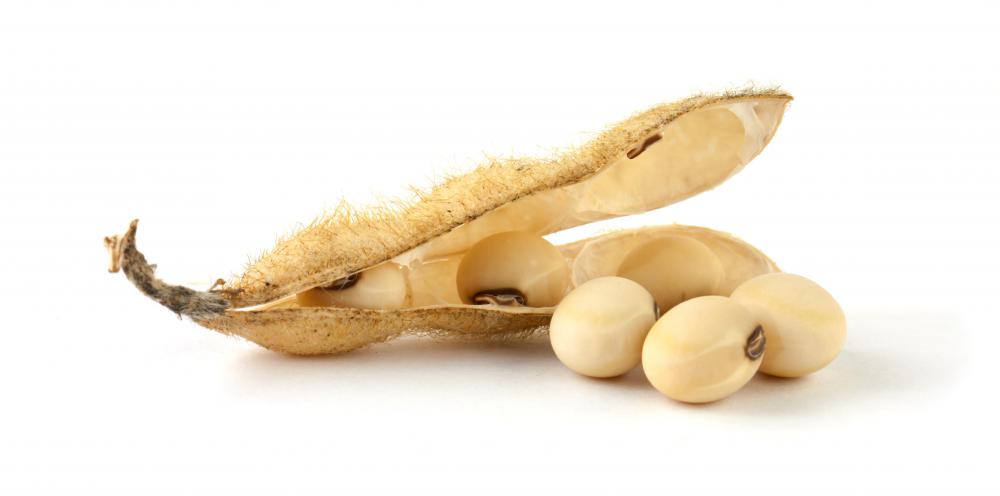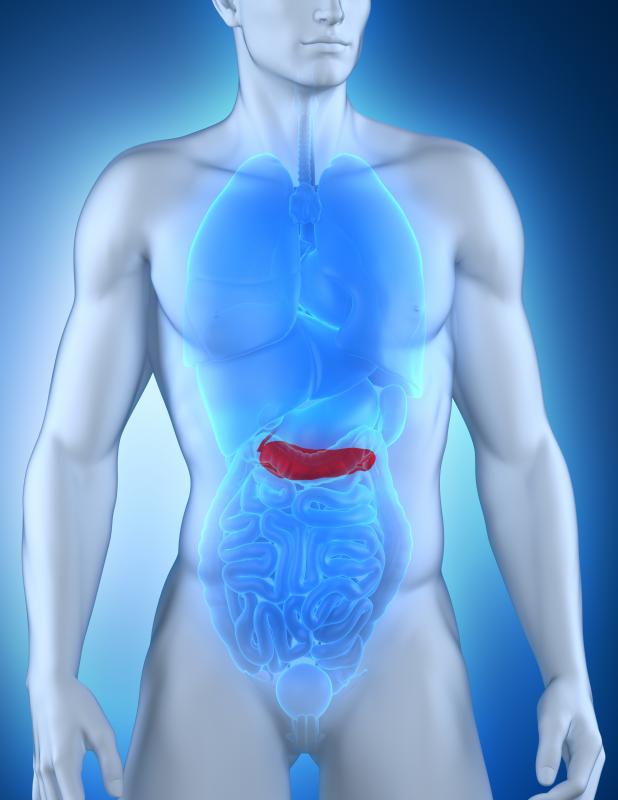At TheHealthBoard, we're committed to delivering accurate, trustworthy information. Our expert-authored content is rigorously fact-checked and sourced from credible authorities. Discover how we uphold the highest standards in providing you with reliable knowledge.
What is a Trypsin Inhibitor?
Trypsin is an enzyme that breaks down proteins in the digestive system. A trypsin inhibitor is a substance that either prevents the trypsin enzyme from breaking down the protein or reduces the enzyme's efficiency. A trypsin inhibitor will, therefore, reduce the amount of protein that the gastrointestinal system can absorb from food. Trypsin inhibitors are found in certain foods and are also produced by human and bovine pancreases.
Trypsin is produced along with another enzyme, chymotrypsin, in the pancreas. Both of these enzymes are serine proteases, which means they cut proteins into smaller peptide fragments. Food protein is first digested with the stomach pepsin enzyme, and then with the trypsin enzymes. The trypsin cleaves proteins at specific points of lysine and arginine amino acids after binding the protein to the active site of the enzyme. A trypsin inhibitor binds to this active site, blocking any further proteolytic action.

A human pancreas produces a trypsin inhibitor because trypsin poses a danger to cells. The pancreas stores the precursor to trypsin, a molecule called trypsinogen, in pancreatic cells. The trypsinogen usually needs to be released into the small intestine to be transformed into trypsin. The trypsin inhibitor is a fail-safe mechanism in case the trypsinogen converts to trypsin before being released.

Trypsin inhibitors and trypsin enzymes are both proteins, which means they are made up of amino acids. Trypsin inhibitors may block more than one type of enzyme. For example, a trypsin enzyme from a bovine pancreas is made up of 229 amino acids. The bovine trypsin inhibitor is made up of 58 amino acids and has the ability to block bovine trypsin, human trypsin and chymotrypsin. It takes 1 milligram of bovine trypsin inhibitor to block 1.5 milligrams of trypsin.

Certain foods also contain trypsin inhibitors. These include soybeans, lima beans and egg white. The plant trypsin inhibitors act as insect repellents, because the inhibitors can affect the normal action of the insect gut. Human breast milk also contains trypsin inhibitors. The presence of trypsin inhibitor in breast milk may protect the baby's intestinal cell wall from damage.

Trypsin enzyme is used in a range of laboratory tests because of its ability to break down proteins. These procedures include cell culture, separating tissues into constituent cells, sample preparation for genetic analysis, and protein studies. Trypsin inhibitors are used to stop the trypsin from doing more damage than necessary to the cells or proteins being tested. Commercial trypsin inhibitors can be obtained from cow pancreas, soybean, lima bean or egg white sources.
AS FEATURED ON:
AS FEATURED ON:
















Discuss this Article
Post your comments